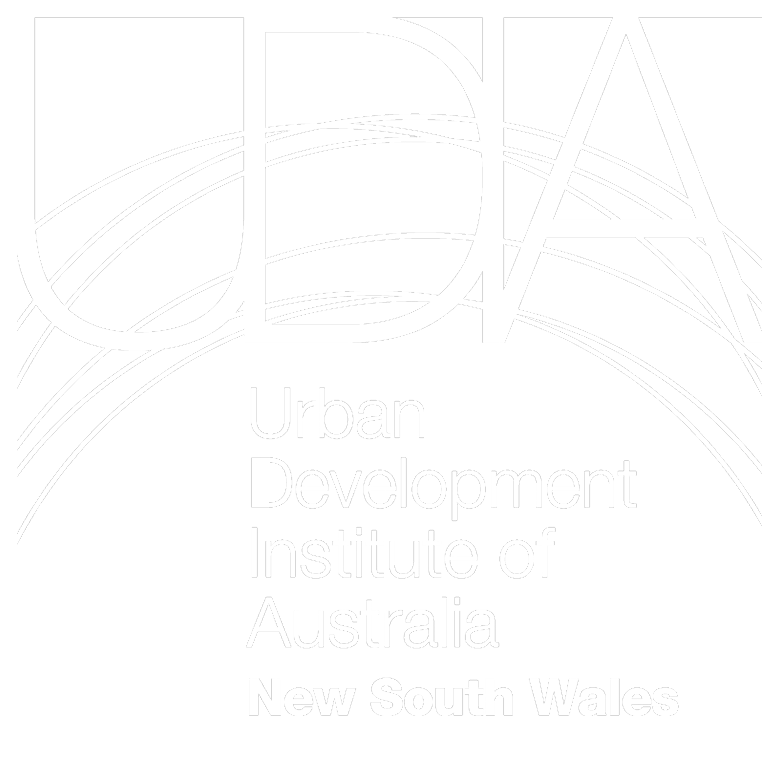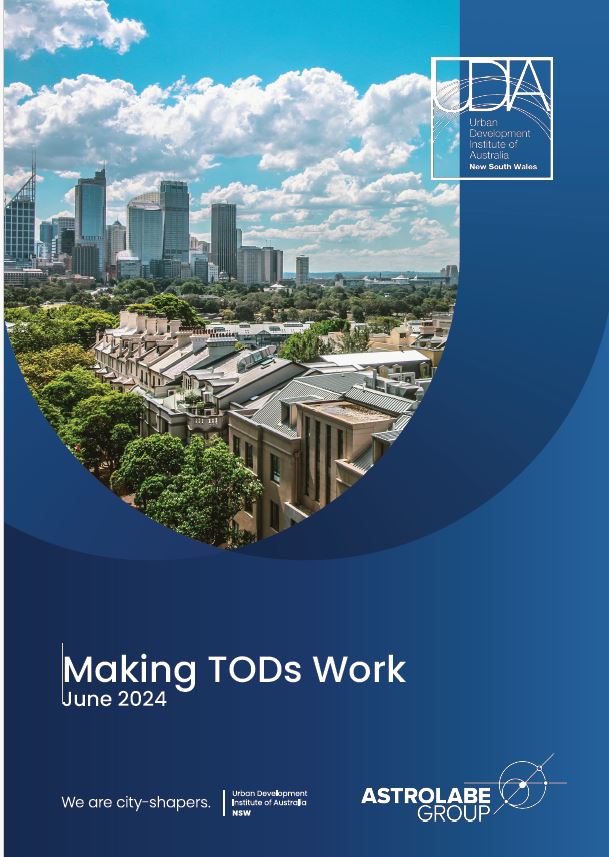UDIA NSW today launched a new research report which has assessed the capacity of Transport Oriented Development to deliver medium density housing around identified Tier 2 Stations in the current economic climate.
Making TODs Work concluded that while TOD SEPP is a sound policy intervention that has the potential to deliver much needed housing to the market, many projects in the TODs will face serious feasibility issues in the current economic climate, meaning the policy is unlikely to deliver at the volumes expected by policy makers unless changes are made.
“While TODs are a welcomed attempt to increase housing supply, our research shows without other interventions from Government they will struggle to get started,” said UDIA NSW CEO, Stuart Ayres.
UDIA engaged Astrolabe Group to undertake a feasibility assessment of the 37 TOD sites, with detailed analysis in 11 sub-markets. The findings identify short-term viability for development of medium density residential flat buildings is limited, with only the North Shore and Inner West sub-regions showing financial feasibility for build to sell models without any additional policy interventions.
Feasibility in all cases was directly impacted by the current high cost to construct, and a limited capacity for consumers ability and willingness to pay. High construction and financing costs and increased development contributions mean an average new unit will need to sell for around $1.1m to secure project financing – a price that is out of reach for many buyers and significantly above the median apartment price in those markets.”
The report makes seven recommendations to improve feasibility in the short to medium-term and help the TOD policy to be well placed to deliver housing at scale when economic conditions improved.
Key recommendations include:
- Reduce and cap fees and charges to improve development feasibility;
– Part 2 TOD SEPP developments should be subject to a standard 7.12 contribution rate of 1% to provide certainty and consistency across the broader geographies.
– State government to place a freeze on HPC levies for developments within sites that commence construction within 4 years from the implementation of the TOD SEPP. - Government to create a circuit breaker to de-risk investment and project financing;
– Government to consider acting as a guarantor to development resulting in a reduced LVR required to gain finance. - Improve development assessment timeframes in the TOD areas;
– Tier 2 TOD SEPP developments that meet the standards specified within the SEPP should be eligible for deemed approval within a 90-day period. - Tier 2 TOD SEPP Developments should have standardised controls to improve viability and consistency across all identified TOD sites and reduce assessment and approval delays;
– Simplifying and consolidating all controls into a single TOD development control plan, including key outcomes of the ADG and Councils control plans would provide simplicity and clarity to all stakeholders and the community.
“While the TODs face serious feasibility challenges in the short term, we are recommending a greater focus on greenfield housing precincts, higher density precincts around transport nodes and working with the development sector to unlock housing on development ready land where planning approvals and rezoning have already occurred,” said Stuart Ayres.
Our industry is committed to build homes for the people of NSW and the recommendations outlined in our Making TODs Work if implemented, would go a long way toward easing the housing crisis in NSW. UDIA urges government work closely with the
industry to implement the key interventions identified in our research that will assist in bridging the feasibility gap.
The full report can be found at this link
–ends—
Media Enquiries: Deanna Lane, Director, Media & Communications UDIA NSW and National
dlane@udiansw.com.au 0416 295 898

